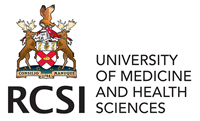This 3 year research intensive PhD project will focus on the study of new treatment options for people with Von Willebrand disease (VWD). Based on the insights derived from the exciting plan of investigation, we aim to improve diagnosis and clinical treatment for people with VWD both in Ireland and around the world.
VWD is the commonest inherited human bleeding disorder. It affects both males and females, with an estimated population prevalence of approximately 1 per 1000 people around the world. People with VWD experience lifelong bleeding. This bleeding can be spontaneous (e.g. nose bleeds, gum bleeding or easy bruising) or can be life-threatening following major surgery or around the time of delivery of a baby. Heavy menstrual bleeding (HMB) is common in women with VWD. Unfortunately, this HMB burden is massively under-recognised and consequently continues to be associated with huge global morbidity. For example, HMB in young women with VWD causes missed days from school and work, leads to iron deficiency, and thus has major socio-economic consequences for the affected individuals. Treatments are urgently required to prevent bleeding complications for individuals with VWD and so this research programme expects to have great impact on the quality of life for people with inherited bleeding disorders.
As a PhD student you will join an established team working in the world-leading RCSI Irish Centre for Vascular biology which is directed by Professor James O’Donnell. This research team has been working on VWD for more than 20 years and has published more than 200 papers on this subject in high-impact journals. As the new PhD student you will be joining an outstanding team, which already includes 5 experienced Post-Doctoral fellows who will provide training on a wide range of state-of-the-art laboratory methodologies spanning molecular biology and cellular biology. This PhD will enable the student to engage with VWD patients attending the National Coagulation Centre in St James’s Hospital, Dublin.
Entry Requirements
Students will have obtained, or be about to obtain, as a minimum an Upper Second Class (2.1) honours degree (or equivalent) in a relevant subject and should provide a grade point average (GPA) for each completed year of undergraduate degree.
English requirements: IETLS >6.5 or must have completed primary degree through the medium of English.
Previous experience in molecular or cellular biology would be useful but is not essential as full training will be provided. As a PhD student you will be joining an established research team which has already optimised all of the experimental techniques required to deliver the planned research and will be taught all of the necessary techniques by experienced Post-doctoral fellows working in the Irish Centre for Vascular Biology.
Applications must include:
(i) a completed application form
(ii) English language requirements – see https://www.rcsi.com/dublin/postgraduate/policies-and-guidelines/english-language-requirements.

 Continue with Facebook
Continue with Facebook



